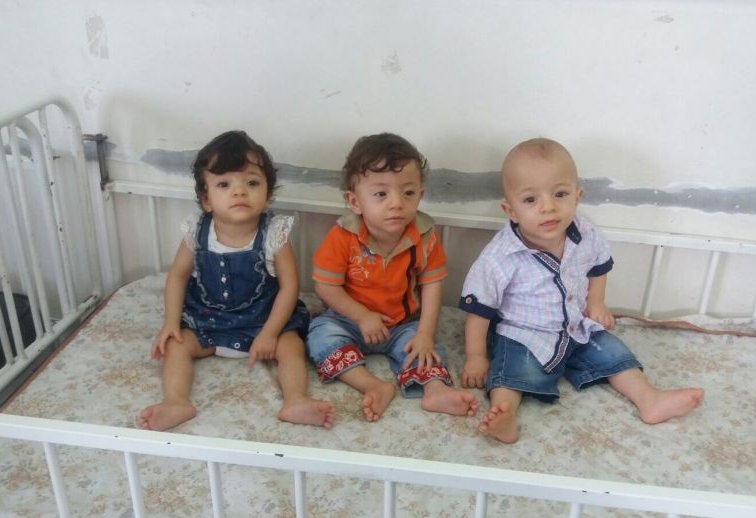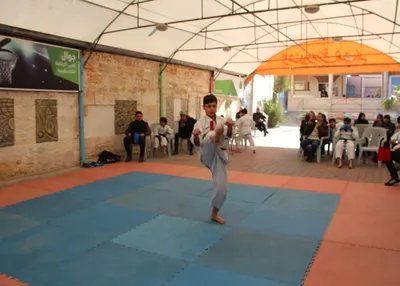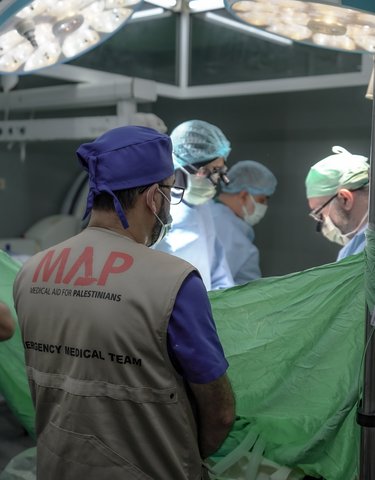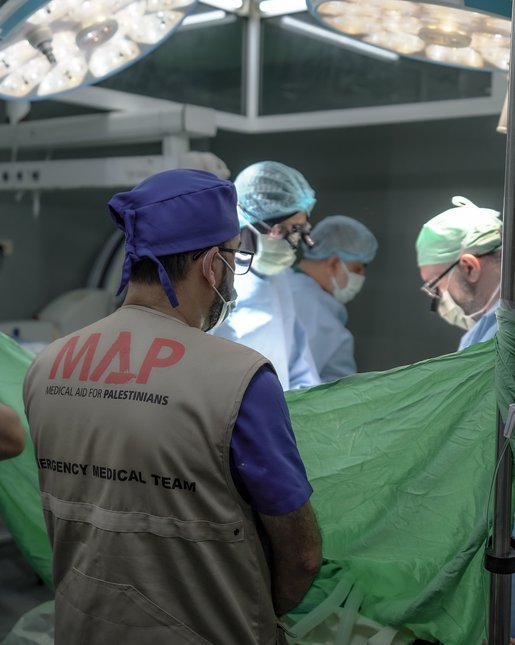Hope for a healthy future: Combatting malnutrition in Gaza

A decade of restriction has placed huge obstacles to the movement of people and goods in and out of Gaza, and badly damaged Gaza’s economy. Unemployment is now among the highest anywhere in the world at 42%, and 80% of people are dependent upon some form of humanitarian assistance.
Many of Gaza’s almost two million residents struggle to afford the nutritious food their families need. As a result, many children are at risk of chronic malnutrition and micronutrient deficiencies. One in ten children under five are stunted, leading to long-term impacts on cognitive, emotional and physical development.
Amid these existing challenges, there are new threats to food security for many of Gaza’s residents due to recently-announced US cuts to funding for UNRWA and the World Food Programme’s announcement that it will terminate a programme providing food assistance to 60,000 people.
Responding to these ongoing needs, MAP, in partnership with Muslim Aid, provides support to a nutrition centre in the southern area of Gaza, run by local charity Ard El Insan (AEI). This clinic identifies at-risk children and provides support for a variety of conditions and illnesses linked to malnutrition, including wasting, anaemia and rickets. It also treats children and adults with coeliac disease.
As well as providing essential medical care, the project distributes food packages, provides fresh meals and supplements, and runs health education sessions about healthy eating and food preparation.
Here is how, with your support, the clinic’s staff are changing lives and restoring health for babies in Gaza, including Hamda, Ali and Yousef:
Hamda, Ali and Yousef*
Hamda, Ali and Yousef were born in September 2016. Their mother, Doha*, who lives in Khan Younis in Gaza, had dreamed of becoming a mother but for nine years previously had been unable to conceive. After undergoing in vitro fertilisation (IVF) treatment, she gave birth two months prematurely to quintuplets in Nablus Hospital, West Bank. Doha’s five babies, including Hamda, Ali and Yousef, remained in an intensive care unit at the hospital for three months.
When the babies returned to Gaza, Doha struggled to adequately feed them due to severe financial constraints. She also had difficultly breast feeding, so began providing her babies with formula milk. Doha became increasingly worried about her babies’ health and, consequently, her psychological wellbeing deteriorated.
Doha had heard about the AEI nutrition centre and the support it provides for malnourished children. She took Hamda, Ali and Yousef along, who were in the most critical state of her five babies.
At the centre, Hamda, Ali and Yousef were assessed and found to be gaining weight at a significantly slower rate than other six-month-old babies. They were admitted for close monitoring and treatment.
Doha participated in health education and cooking sessions explaining how to provide a nutritious diet, and she received individual counselling. She was also given a food ration to be cooked and used at home, including 16kg of fortified biscuits, four children’s food packages and four family food packages.
Since attending the centre, Hamda, Ali and Yousef’s health has significantly improved. All three babies have gained weight and grown taller. Before coming to centre, Doha was scared of losing her babies. Reflecting on the support Hamda, Ali, Yousef and herself received, she said:
The MAP-supported malnutrition centre saved my children’s lives and gave me hope again. Thanks to all the people behind this project
Please donate today to our Women’s and Children’s Health Programme to help us continue supporting babies in Gaza.
*Names have been changed to protect identities
Cover image: Three of Doha's children in October 2017
Related content



